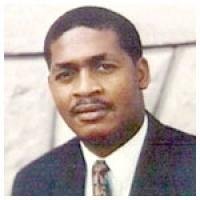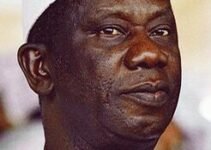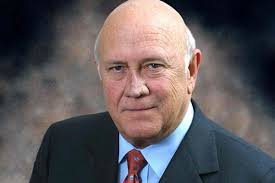As the sun rises on March 22, South Africa awakens to a new day and echoes its ever-evolving history. But what specific tales does this particular date whisper? We embark on a journey to uncover the threads woven into the fabric of March 22 in South Africa.

2005: Noby Ngombane is murdered
Noby Ngombane, 38, head of the Free State government’s policy monitoring and evaluation unit in the premier’s office, was shot dead at his house in Bloemfontein. The murder trial of Ngombane’s wife and four relatives has several times been postponed in the Bloemfontein High Court.
1999: South Africa defeats New Zealand by 3
Daryll Cullinan and Jacques Kallis sent South Africa to a 3-2 win over New Zealand, with SA being unbeaten in six series matches, with Kallis and Cullinan scoring 94 and 100 runs, respectively. This gave South Africa a victory of 290 runs with five wickets in hand.
1991: UNHRC service is enlisted in repatriation process
The SA government announced that the United Nations High Commissioner for Refugees (UNHCR) would be requested to help in repatriating about 40,000 political exiles to South Africa from countries with which Pretoria did not have diplomatic relations. On March 7, the first batch of African National Congress (ANC) exiles returned home from Zambia on a plane, while 550 more were expected in the following weeks. Government sources also revealed that they received 6,000 applications from exiles who wanted to return.
1988: Mazizi Maqekeza, ANC member, is shot dead whilst in hospital in Maseru, Lesotho
Mazizi Maqekeza and Mbulelo Ngona were among the many South Africans who fled across the border to join the African National Congress (ANC) in their armed struggle against the South African state. On 25 February 1988, Maqekeza, Ngona and a University of Lesotho student, Thandwefika Radebe, were stopped at a roadblock ordered to identify themselves. After they were searched, they were told that the soldiers had orders to shoot them. Somehow Ngona managed to escape, while Radebe was killed and Maqekeza, heavily wounded was left for dead. Maqekeza was later found by some locals and taken to hospital. However, his wounds were not adequately treated and he was interrogated constantly for almost two weeks. Maqekeza was unwilling to supply any information and was moved to a different ward without any reason. On 22 March 1988 he was shot and killed by unknown gunman through an open window.
1985: The Ozone Layer Protection Convention was signed in Vienna, and SA is a signatory
The ozone layer protects us from harmful ultraviolet radiation. Chlorofluorocarbon gases (CFC) could harm this layer, causing mutations and damage to human, animal, and plant cells. The Vienna Convention, signed in 1985, is a multilateral environmental agreement that aims to prevent activities that harm the ozone layer. There are 196 states that have ratified it, including South Africa.
1979: President Vorster challenges Dr Rhoodie
President B.J. Vorster denied any involvement in the information affair. He challenged Dr. Eschel Rhoodie to release any document that would implicate him. The Prime Minister, P.W. Botha, released a statement saying that the Cabinet knew of secret projects, but not about the state funding of The Citizen or any other irregularities. He would resign only if it could be proven that members of his cabinet were aware of the funding of The Citizen before he came into power.
1961: Kwame Nkrumah urges global leaders to impose economic and political sanctions on South Africa
Kwame Nkrumah was a Pan-Africanist and first president of Ghana who worked towards a united Africa. He founded the Organisation of African Unity (OAU) and called for sanctions against South Africa’s apartheid policies in 1961. The OAU closed African harbours to South Africa and convinced the United Nations to expel it from bodies like the World Health Organisation.
1956: Martin Luther King is arrested for his role in a bus boycott
Reverend Martin Luther King leads a public bus boycott by black people in Montgomery, Alabama, USA, for which he is arrested and spends six months in prison. King is recognised as one of the greatest human rights leaders of all time. His moving speech, “I have a dream,” spoke to the hearts of people the world over, about injustice and racial oppression. His dream of freedom became a dream of black people around the world. He condemned South Africa’s apartheid regime on many occasions. On December 10, 1962, King and Chief Albert Luthuli launched a human rights campaign in which they appealed for “Action against Apartheid”. In this campaign, they called for: Demonstrations to mark 10 December, Human Rights Day Observation of 10 December by churches and unions Economic sanctions against South Africa. Submissions to the United Nations urging the adoption of a resolution calling for international isolation of South Africa Boycott on South African products Read more about the Montgomery bus boycott.
1932: Novelist and poet Kgadime Matsepe is born
Kgadime Oliver (Phukubjane) Matsepe, Northern Sotho novelist and poet, is born in Magagamatala (Brakfontein or Mmitse), Groblersdal district. He was twice awarded the S.E. Mqhayi Prize by the Suid-Afrikaanse Akademie vir Wetenskap en Kuns (South African Academy for Arts and Science), namely for his work Kgorong ya Mosate (At the king’s court) in 1964 and Meyokgo ya bjoko (Tears of the brain) in 1973. His father was a senior police sergeant and his grandfather was the chief Bloeu of the Kopa tribe. Matsepe’s writing began in 1954 at Kilnerton institution where he wrote his first literary work Sebatakgomo.
1907: Asiatic Law Amendment Act is passed in Transvaal parliament leading to increased Indian protest under MK Gandhi
In 1906, the Transvaal government promulgated a new act which enforced registration of the colony’s Indian population. At a mass protest meeting held in Johannesburg on September 11th that year, MK Gandhi adopted his methodology of satyagraha (devotion to the truth) or non-violent protest for the first time. He called on his fellow Indians to defy the new law and suffer the punishments for doing so, rather than resist through violent means. This plan of satyagraha was adopted, but the campaign gained momentum when the Asiatic Law Amendment Act was passed in Transvaal parliament on 22 March 1907. The Asiatic Law Amendment Act, 2/1907 (“The Black Act”) was identical to Ordinance 29/1906.



